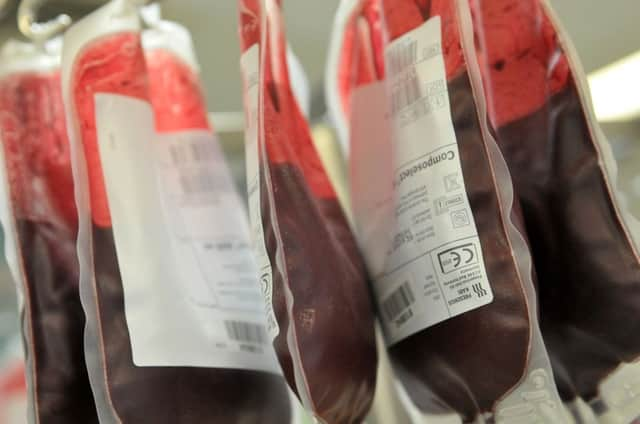Call for compensation over tainted blood


The long-awaiting findings of the Penrose Inquiry will be unveiled on Wednesday. They are expected to detail the scale of the suffering caused by people who were infected with hepatitis and HIV during routine blood transfusions.
Campaigners who have fought for justice for decades say as many as 500 people in Scotland were infected with contaminated blood and that as many as 300 people have died as a result.
Advertisement
Hide AdAdvertisement
Hide AdAcross Britain, it is understood that close to 5,000 people were exposed to hepatitis C before new measures to kill viruses in blood were put in place in the mid 1980s. Of these, more than 1,200 people were infected with HIV and it is thought around 2,000 individuals have died.
Officials from the charity Haemophilia Scotland met health secretary Shona Robison earlier this month, where they made clear the need to “learn lessons” from the inquiry’s report, including an urgent review of the support arrangements for those affected.
The charity said it has received an assurance that what it describes as a “distinctly Scottish support settlement” has not been ruled out.
The long-awaited findings of the inquiry will be published on Wednesday. It is expected that both the Scottish and UK governments will issue statements following the publication.
Patrick McGuire, from Thompsons solicitors, the legal firm representing many of the families, said that those who have been affected will be pushing for compensation.
He said: “The hope is that the report will lay bare the suffering and financial consequences suffered by victims and provide a springboard to the next stage of the campaign. We want the Scottish Government to set up a fund for Scottish victims, who will tell you the current levels of compensation are a pale imitation of what they should be.”
The Penrose Inquiry was announced by then health secretary Nicola Sturgeon in April 2008. Preliminary hearings began six years ago and it has since sat for 89 days and heard from scores of witnesses.
The findings, which are expected to be published in five volumes, will be unveiled at a press conference at the National Museum of Scotland in Edinburgh. The inquiry’s chair, Lord Penrose, will not attend the event due to illness.
Advertisement
Hide AdAdvertisement
Hide AdCampaigners, who have fought for decades for justice, yesterday said the legacy of the scandal continues. Bill Wright, chair of Haemophilia Scotland, said: “Unfortunately, it continues right up until this day – there are still people who are very ill as a consequence and there are still families living with the grief.
“We will have to wait and see what the Penrose Inquiry report says, but we think there have been around 500 infected in Scotland, as many as 300 of those could be dead. It is important to remember that behind every statistic there is a life.”
Gill Fyffe from Dundee contracted hepatitis C from a blood transfusion she was given at the birth of her second child in 1988. Although she was successfully treated, she developed an autoimmune reaction which has left her unable to work.
She said: “If the inquiry can say what has happened, that will make a huge difference to the people who are coping with the consequences of all this.”
FOLLOW US
SCOTSMAN TABLET AND MOBILE APPS